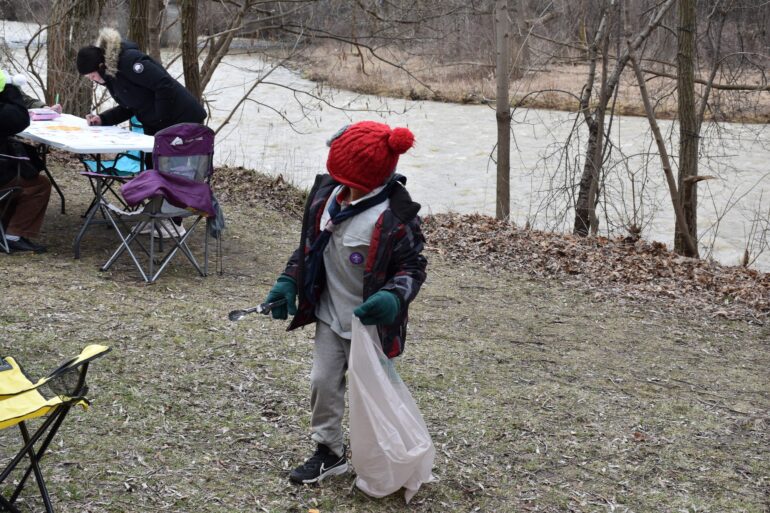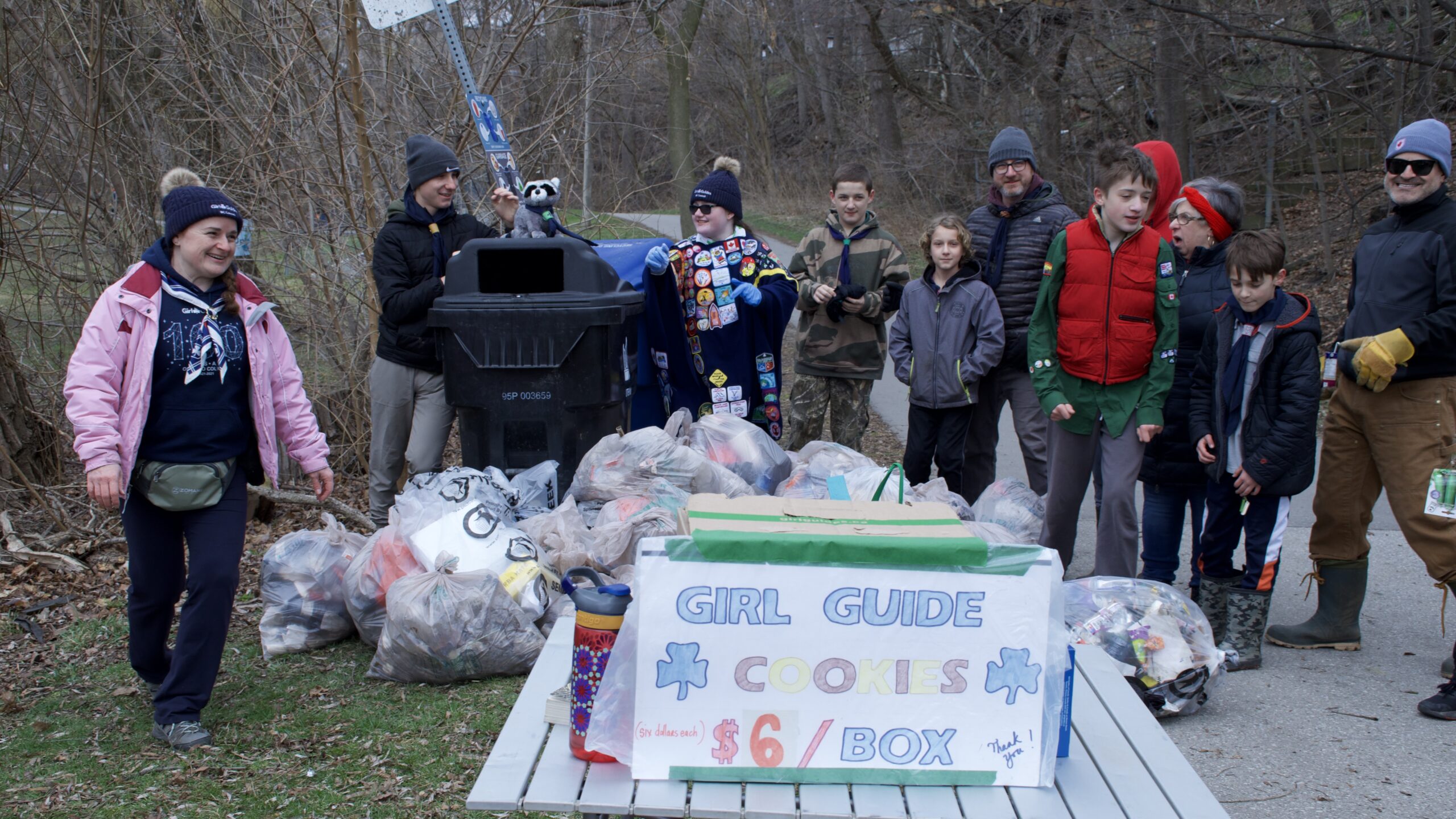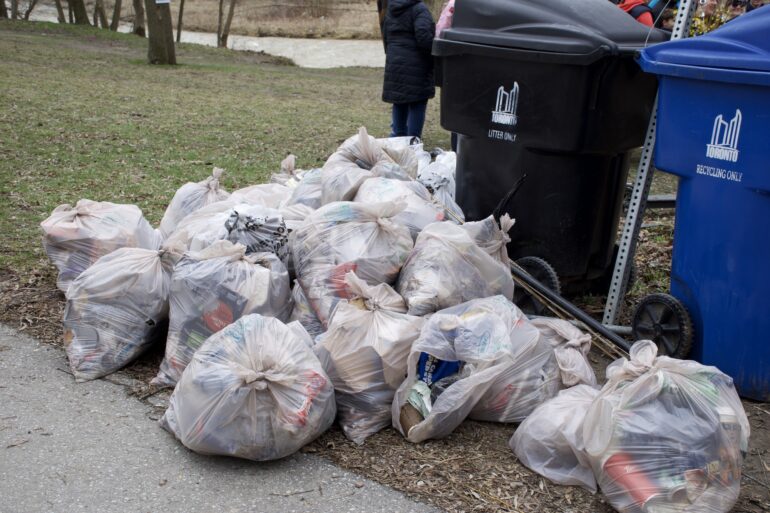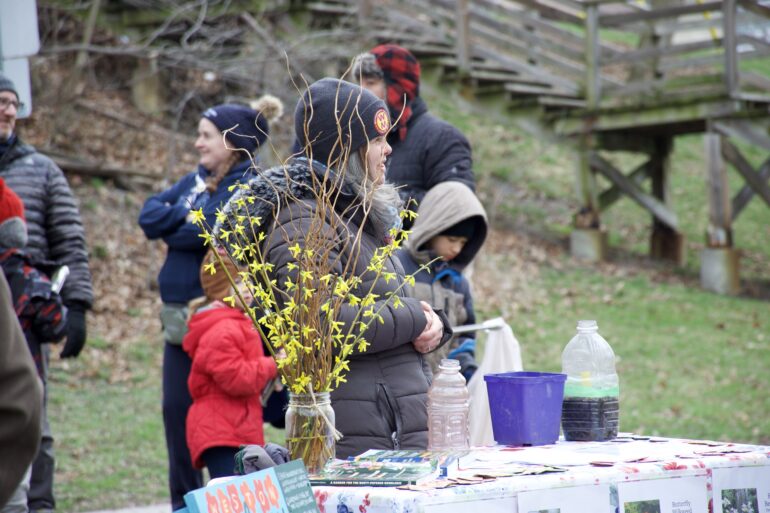It began as a group of friends who cleaned up the river banks in a park off Weston Road in northwest Toronto three years ago. It’s since grown to become a community project to clean up the river and the neighbourhood.
“It started with some friends and neighbours,” event organizer IkiNori Lau said.
“We were just having lunch, and we just couldn’t ignore the garbage around our picnic site,” she said. “So instead of being here leisurely, we felt called to show the river some love.”
Lau wanted to show how much she loved rivers when the concept of clean-ups was conceived.
The Humber River Pals is a community clean-up project launched in May 2021. Each year, a dedicated group of individuals gathers to clean up the river and surrounding neighbourhoods.
The Humber River pals did their first clean-up of the year on Saturday, March 16, at Cruickshank Park from 10 a.m. to 12 p.m.
Lau said the turnout was more than she expected and was happy with the garbage they collected.
“I measure success by the number of garbage bags we see piled,” she said. “It’s important that all of us act locally while thinking globally.
“I think it’s important that people come out to events that are being organized or take it upon themselves to organize events closer to where they enjoy being,” Lau said.
She said cleaning up as a neighbourhood contributes to a morale boost and helps to build community.
“We know climate change is real, so I feel like it’s very therapeutic to come out to these community events and not feel alone in witnessing what’s happening around the world,” she said.
Brian MacLean, a volunteer, returned this year to help clean up the river and maintain a litter-free park. In the fight against climate change, clean-ups like this are where some people feel safe.
“I’m bugged by litter, I just think it’s such a disrespectful way to treat nature. And I know people don’t litter intentionally, but it’s so distressing,” he said.
MacLean also volunteers at the Toronto Nature Stewards, a program for stewardship of public land in natural regions and ravines outside city control.
He said people must participate in community clean-ups because parks belong to us.
“It’s public space, that means we collectively own it. But that means we have a collective responsibility for it, too,” he said.

A youngster with a plastic bag and a trash grabber joins the clean up at Cruikshank Park in Weston. Photo credit: Hawi Tulu
The Humber River stands as the sole Canadian Heritage River in the GTA. The river was officially recognized in 1999 as a Canadian Heritage River under the Canadian Heritage Rivers System.
MacLean said he’s deeply concerned about the preservation of the river.
“We have these beautiful natural spaces in Toronto, these amazing rivers. They make up 17 per cent of the city. They are real treasures,” MacLean said. “There’s something very distinctive about Toronto, and we have to protect them.
“When you notice new trees or trees dying or what’s growing or what’s in trouble, you begin to feel like it’s something that you care about. And that’s a good feeling,” he said.
Trees have an important role in combating climate change. The Humber River Pals have collaborated with specialists to train their volunteers in proper tree-planting techniques.
Val Groves, the owner of Kick Gardening Services, said gardening is how she helps her community.
“I’ve brought some different seeds with me. I also have some instructions for good ways to plant them. It’s very important to know how to take care of seeds,” she said.
“Trees are super important when dealing with climate change; the more we can plant, the better,” Groves said.
She recommended individuals interested in growing seeds should begin with native varieties.
“Focus on trees native to this area and look for those resources because you don’t necessarily need to start them from seed. There are options for getting an actual tree,” she said.
The Humber River Pals’ next clean-up is on April 20 in honour of Earth Day. Details will be confirmed and shared through their social media.



